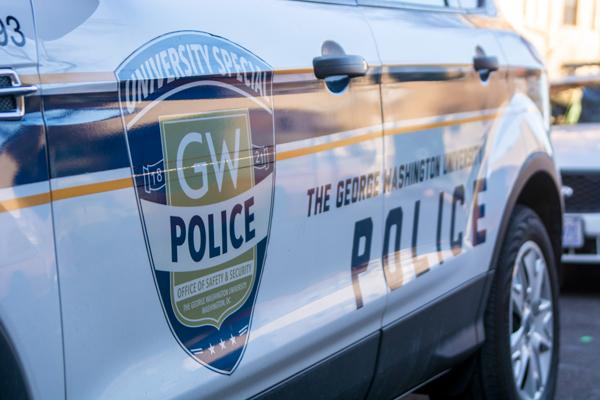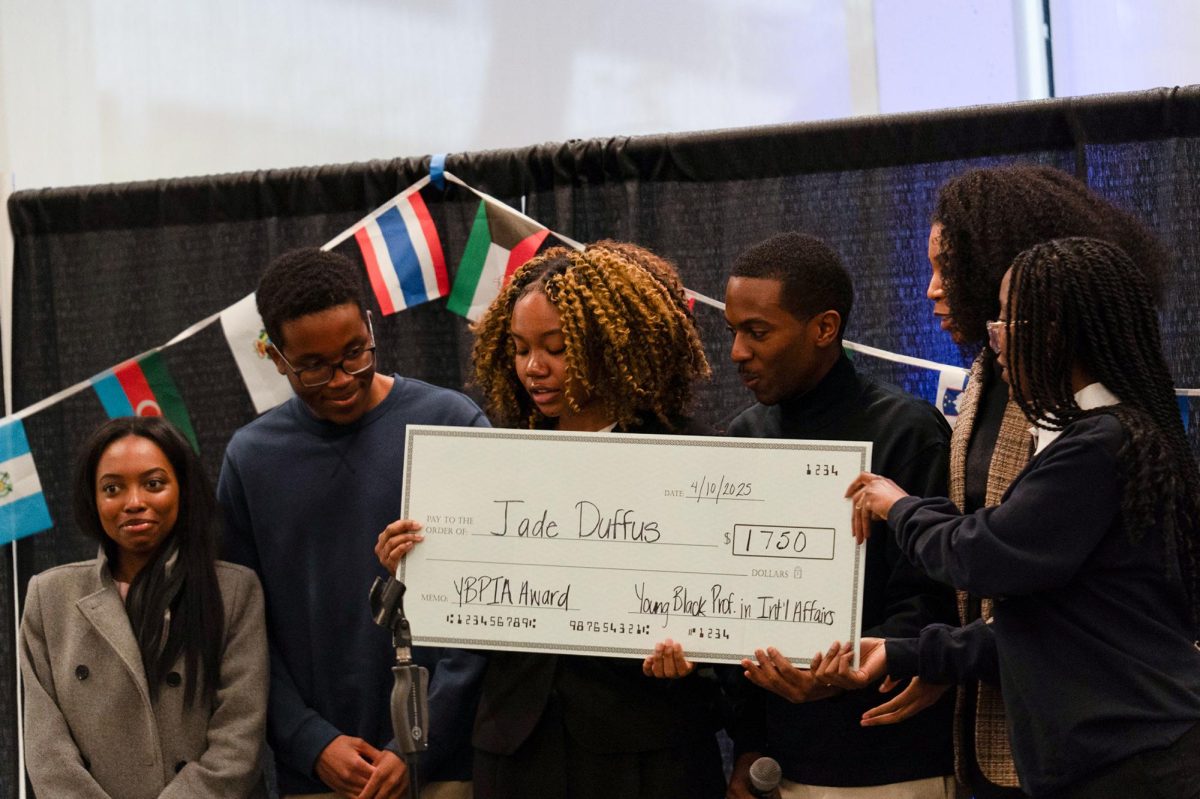Security officials say they’re preparing for scenarios, like protesters and truck attacks, that were not major concerns at the last presidential inauguration.
About 3,000 additional officers from around the country will maintain security in the District on Inauguration Day, Mayor Muriel Bowser said at a press conference. Security workers will set up a perimeter around the ceremony and parade route and prepare to diffuse situations from perimeter breaks to potential attacks.
Because the Foggy Bottom Campus is so close to the activities that weekend, even those not attending inauguration events will be impacted by the security measures. On Inauguration Day, the president-elect will be sworn in at the Capitol with the inaugural parade ending at the White House, and a concert will be held at the Lincoln Memorial the day before.
While some officials said many of the same procedures from past inaugurations will be used again this year, others said President-elect Donald Trump’s swearing-in could inspire larger protests and therefore a need for extra security.
Darrell Darnell, the senior associate vice president for safety and security, said in an email that no protesters have requested to demonstrate on campus, but that student or non-student protesters will be allowed to express their opinions on campus.
GW officials worked with regional and federal agencies, like the Metropolitan Police Department and the U.S. Secret Service, to determine how the inauguration would affect campus, Darnell said.
“As long as individuals walking through our campus are conducting themselves in a peaceful manner, we will take no action,” he said.
He added that the University will not take any new measures this inauguration, and the University Police Department will operate on its usual 24-hour-a-day schedule with all UPD officers and staff. EMeRG will act as back-up to D.C. Fire and EMS.
Extra security will assist with crowds on and around campus, secure residence halls and be deployed as necessary otherwise, Darnell said.
After permits are approved by MPD, the locations for protests are approved by the Presidential Inaugural Committee to ensure the areas are not in use. Park police approve permits on park grounds, Chris Geldart, the director of D.C. Homeland Security and Emergency Management Agency, said in a Jan. 6 press briefing.
The majority of the Foggy Bottom Campus is within the outer security perimeter of the U.S. Secret Service map created for the inauguration, which means vehicle transportation will be limited east of 23rd Street and south of K Street.
Despite vehicle limitations, the Vern Express will still run with the Foggy Bottom stop moving to the Lerner Health and Wellness Center from Jan. 20 at 1 a.m. to Jan. 21 at 7 a.m. because it is west of the vehicle restriction zone, according to a campus advisory statement posted Wednesday.
There will be three main entrances to the Foggy Bottom Campus along 23rd Street at the corners of I, H and G streets. People will need GWorld cards or government issued identification to enter those checkpoints. UPD officers along with the National Guard and other security officials will monitor those areas.
Peter Newsham, the Metropolitan Police Department’s interim chief, said at the Jan. 6 press briefing that people on social media have said they intend to stop the inauguration, and that MPD has prepared to deal with those threats if necessary.
“As you know, we’ve experienced that type of thing before in the city, and we’ll be able to handle it,” he said.
During the 2013 inauguration, 150 antiwar protesters caused a mile-long blockade to be built on 16th Street, according to The Washington Post.
The U.S. Homeland Security Secretary Jeh Johnson said in a press briefing Friday that 99 organizations intend to demonstrate, according to social media posts, and fortifications will be created to prevent a vehicle attack similar to trucks that ran down crowds last month in Germany and in July in France, USA Today and AP reported.
“This year in particular the hard vehicle perimeter will be heavily fortified by trucks, dumpsters, buses and the like given the current threat environment,” Johnson said in the briefing.
Rachel Reid, a spokeswoman for MPD, said in an email that law enforcement officials working inauguration will be trained on security subjects including crowd control, protesters and transportation plans.
“MPD will work diligently to facilitate protesters’ first amendment rights,” she said.
Still, Marina Streznewski, the president of the Foggy Bottom Association who has lived in the District through 10 inaugurations, said D.C. officials and residents are more worried about safety this inauguration than in previous years.
“I know people are concerned about the possibility for violence but then even if it isn’t huge but like scraps and arguments and that sort of thing, which we were not concerned about four or eight years ago,” she said.




